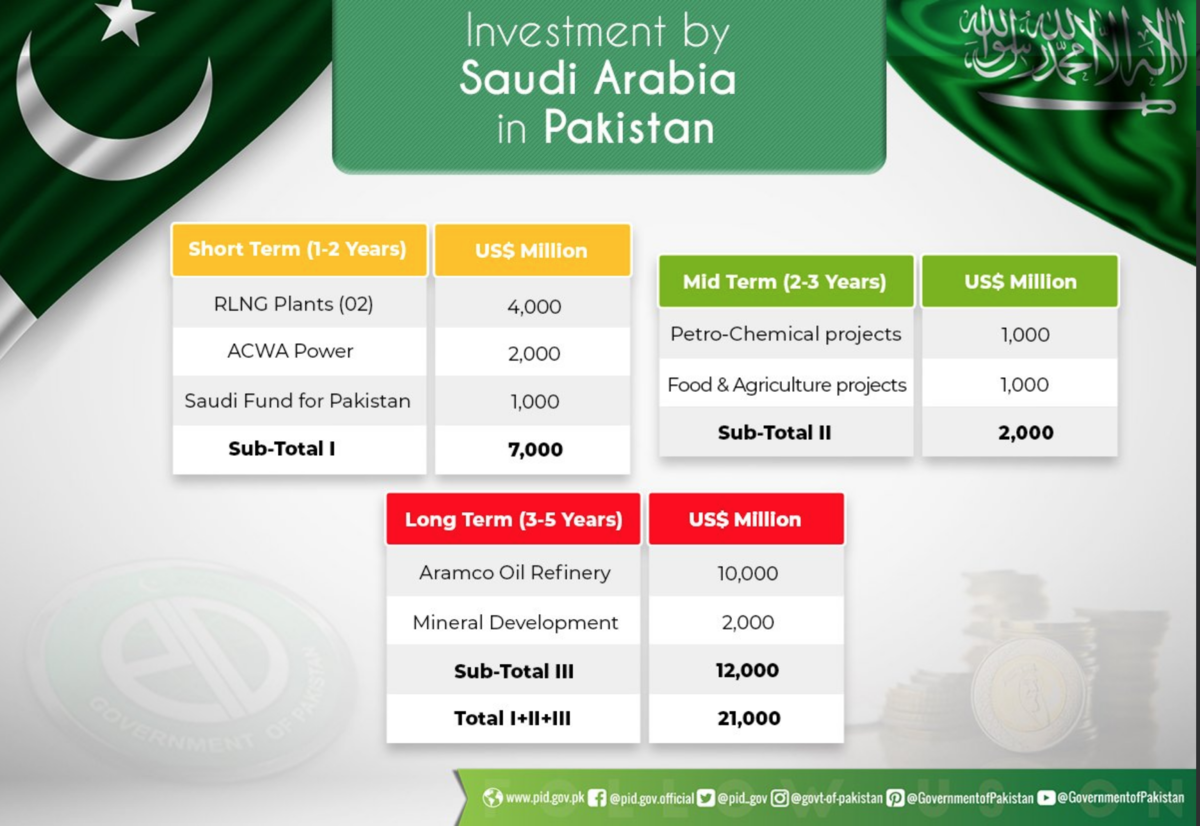ISLAMABAD: The Pakistani and Saudi foreign ministers on Monday said a coordination council would follow up on $21 billion in agreements signed during the visit to Pakistan of the Saudi crown prince and ensure their timely implementation.
The investments come at a time when Pakistan is fighting to secure its financial future in the face of a yawning current account deficit.
Crown Prince Mohammed bin Salman arrived in Pakistan on Sunday on the first stop of a trip to South Asia and China and signed memoranda of understanding [MoUs] worth $21 billion in the refining, petrochemical, renewable energy and mining sectors. An agreement to supply Pakistan crude oil and petroleum products was also signed. The crown jewel of the agreements is a $10 billion oil refinery to be set up in the port city of Gwadar in southwestern Pakistan.
“Now our technical and financial teams will look into all these projects to implement them,” Saudi foreign minister Adel bin Ahmed Al-Jubeir said at a press conference with his Pakistani counterpart Shah Mehmood Qureshi Monday morning.
Pakistan and Saudi Arabia have announced a “supreme coordination council” that will follow up on and ensure the timely implementation of all agreements signed during the visit of the crown prince. The council held its first meeting on Sunday night.
Jubeir said the coordination council would “involve almost every facet of our governments; whether it's security, political consultation, trade and investment, or culture.”
“We believe in the great potential of Pakistan for investments ... and the signing of the MoUs is just a beginning,” Al-Jubeir said.
He said the investments would benefit both countries mutually and clarified that the deals were “not charity”: “This is an investment,” he said.

Chart of Saudi investments in Pakistan. (Source: PID)
The Pakistani foreign minister told reporters the coordination council had a “specific timeline and action plan” to implement agreements, adding that senior leaders of the two countries would meet once a year to review progress on the deals.
“Some of the MoUs are announced while a number of others are still in the pipeline and will be announced in due course of time,” Qureshi said, “This [signing of agreements shows] seriousness of Saudi leadership for investment in Pakistan.”
To a question about combating terrorism, the Saudi foreign minister said terrorism was a common enemy and Pakistan, Saudi Arabia and the United States were working together to counter it.
“Saudi Arabia has been a victim of terrorism,” he said. “We have been vigilant and unmerciful in going after the terrorists and those who support them and condone them.”
He also said Saudi Arabia was working with Pakistan and the U.S. to help reach a negotiated settlement to a 17-year-long war in neighboring Afghanistan and end a conflict between Taliban insurgents and the Western-backed Kabul government.
Commenting on tensions between nuclear-armed rivals Pakistan and India in the aftermath of a militant attack in Indian-administered Kashmir in which 44 paramilitary policemen were killed, the Saudi official said: “Both the countries should resolve all their differences peacefully.”















